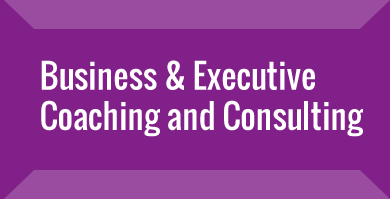Robert Louis Stevenson said, "Everyone lives by selling something." Yet, most people don’t understand the sales process and their part within it.
Disappointingly, in
As leaders we must develop our salesmanship and leadership ability to achieve the success we seek.
My career focus, particularly over the past 20 years has been to coach people to greater self-awareness, purpose, personal strengths and a sense of well-being that often translates into greater compensation or business success, business or job satisfaction and practical use of their knowledge, skills and abilities.
A person’s resilience and sales skills are especially crucial for small business success.
Developing commitment in a world of employees, other business owners, peers, free agents and volunteer talent is not an easy assignment and requires the development of our leadership skills; that effective leadership ability that you didn't learn in school or executive education.
The place to start is with both a strategic leadership checklist and then a tactical ‘sales call’ or influencing conversation checklist.
There are three major components of the sales planning process. Write on a piece of paper or ‘post it’ pad your:
1. Sales Objective (or conversational goal),
2. Strategy (Ask, Show, Tell) and
3. Anticipated Obstacles (the other person(s) doubts, objections, concerns).
A Sales Objective must have:
- An economic value,
- require an action by the ‘prospect’,
- specify an accomplishment date,
- be realistic and allow for impartial evaluation.
In the Strategy, you would write the questions to Ask to move the sale forward (but no leading or judgmental questions only information seeking questions), what you plan on Showing others (be sure you have those items handy before the conversation begins) and what you plan to Tell to build interest in your proposed message (easily proven statements that consider the prospect's expectations).
Write down the Anticipated Obstacles and how you plan to answer each. What you plan to ask the ‘prospect’ regarding his or her concerns.
To get yourself ready for the ‘sales’ interaction, use this 20 question check list (Note: Pilots who fail to use their pre-flight checklist endanger themselves and their customers):
1. What good reason is there for the customer to buy the product or service from your company?
2. Is this actually a "worthwhile" account? Is it worth the time and effort? Why?
3. Should this call have priority over other conversations to be engaged in today? Why?
4. What are the customer's real needs? Have I considered them from their perspective?
5. Is the purpose of this call to secure an order? What order? Is this goal realistic?
6. If not to secure an order, what is the purpose of this call, ie. what do you expect to achieve?
7. Is this call an important step in the overall development of the account?
8. Who is the decision-making authority?
9. Whom do I plan to see? Is it the right person? What can I do about that?
10. How can I reach the decision-maker without antagonising others?
11. Should a phone call for an appointment be made? Who should be in the conversation?
12. What is my basic strategy to achieve the desired results?
13. What kinds of questions might I ask to obtain the information and involve the prospect in the conversation?
14. Are there any specific sales tools, samples, letters or proposals that I should use?
15. What can I do on this call, in addition to making a sale that will lay the groundwork for another sale in the future? How? With whom? With what sales tools, aids or samples?
16. If the customer is dissatisfied for any reason, why? And how will I handle the situation?
17. What other obstacles are likely to arise? Are they real obstacles? If not, what might be the real obstacle?
18. How might obstacles be overcome? Have I considered the client's viewpoint? Can we talk about them openly? Is more information needed? Is the information meaningful to him or her?
19. When was my last sales call?
20. What happened? Why? What am I going to do about it?
Source: Coach2Coach e-newsletter, September 24, 2011.



























